Upper Endoscopy
(EGD)
Upper Endoscopy (EGD): A Key Diagnostic Tool for Upper Digestive Health
An upper endoscopy, also known as an EGD (esophagogastroduodenoscopy), is a vital diagnostic procedure that allows your doctor to examine the upper part of your digestive system, including the esophagus, stomach, and the first portion of the small intestine (duodenum). This minimally invasive test provides valuable insights into a variety of symptoms and conditions, ensuring accurate diagnosis and effective treatment.
What is an Upper Endoscopy?
An EGD uses a thin, flexible tube equipped with a light and camera to provide clear images of the upper digestive tract. It is commonly used to evaluate symptoms such as difficulty swallowing, persistent heartburn, upper abdominal pain, nausea, or unexplained weight loss. This procedure can also identify conditions like acid reflux (GERD), ulcers, inflammation, or even early signs of cancer.
What Happens During the Procedure?
Before your upper endoscopy:
- You’ll receive preparation instructions, including fasting for several hours.
- A sedative will be provided to ensure your comfort throughout the procedure.
During the procedure:
- The doctor will gently guide the endoscope through your mouth and into the upper digestive tract.
- Detailed images of your esophagus, stomach, and duodenum will be captured for evaluation.
- If necessary, biopsies (small tissue samples) can be taken during the exam for further testing.
The procedure typically takes 15-30 minutes, and you will be monitored as the sedative wears off. You can resume normal activities later in the day but will need someone to drive you home.
Why is an Upper Endoscopy Important?
An upper endoscopy is an essential tool for diagnosing and managing conditions that affect the upper digestive system. It is more precise than imaging tests like X-rays and allows for immediate therapeutic interventions, such as removing polyps or treating bleeding areas.
How Often Should You Have an EGD?
The frequency of an upper endoscopy depends on your symptoms, medical history, and risk factors. Your doctor will recommend the procedure if they suspect a condition requiring close evaluation, ongoing monitoring, or treatment.
Dedicated Care at Bedford Gastroenterology
At Bedford Gastroenterology, we are committed to providing expert care in a comfortable and supportive environment. Our team will ensure you feel at ease throughout the process, answering any questions and tailoring care to your individual needs.
Take the first step toward better digestive health. Contact us today to schedule your upper endoscopy and experience personalized, compassionate care you can trust.

